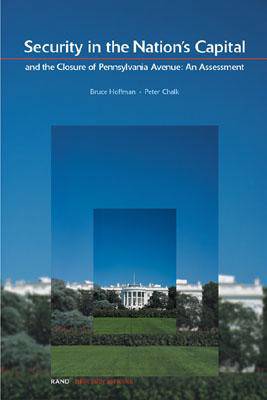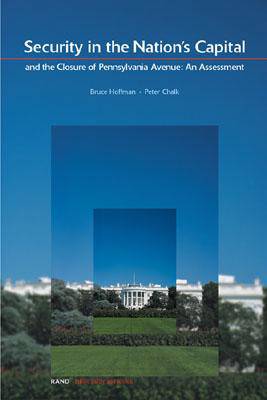
- Afhalen na 1 uur in een winkel met voorraad
- Gratis thuislevering in België vanaf € 30
- Ruim aanbod met 7 miljoen producten
- Afhalen na 1 uur in een winkel met voorraad
- Gratis thuislevering in België vanaf € 30
- Ruim aanbod met 7 miljoen producten
Zoeken
€ 25,95
+ 51 punten
Omschrijving
Acts of terrorism are not a new threat to Washington, D.C. Over the past two centuries, there have been several organized terrorist attacks, as well as numerous assaults by unstable individuals acting alone, that have targeted the White House and U.S. Capitol building and the President or U.S. Congressmen within the city limits of the District of Columbia. Nevertheless, it was not until the 1980s that such incidents evoked heightened security around the White House, initiating a process of fortification that culminated with President Clinton's decision in April 1995 to close the section of Pennsylvania Avenue running in front of the executive mansion. While some have criticized the move as a knee-jerk reaction that symbolizes a bunker mentality at odds with the perceived strengths of American democracy and freedom, others have vigorously defended the action as a reasonable contingency in the face of a potentially serious and realistic threat. The book considers how Pennsylvania Avenue can be re-opened while still ensuring to the greatest extent possible the safety and security of the President of the United States.The research was conducted as part of a larger project aimed at reassessing and reconsidering the physical security measures that have been imposed on the District of Columbia in recent years.
Specificaties
Betrokkenen
- Auteur(s):
- Uitgeverij:
Inhoud
- Aantal bladzijden:
- 75
- Taal:
- Engels
Eigenschappen
- Productcode (EAN):
- 9780833029331
- Verschijningsdatum:
- 19/12/2002
- Uitvoering:
- Paperback
- Formaat:
- Trade paperback (VS)
- Afmetingen:
- 153 mm x 228 mm
- Gewicht:
- 122 g

Alleen bij Standaard Boekhandel
+ 51 punten op je klantenkaart van Standaard Boekhandel
Beoordelingen
We publiceren alleen reviews die voldoen aan de voorwaarden voor reviews. Bekijk onze voorwaarden voor reviews.











